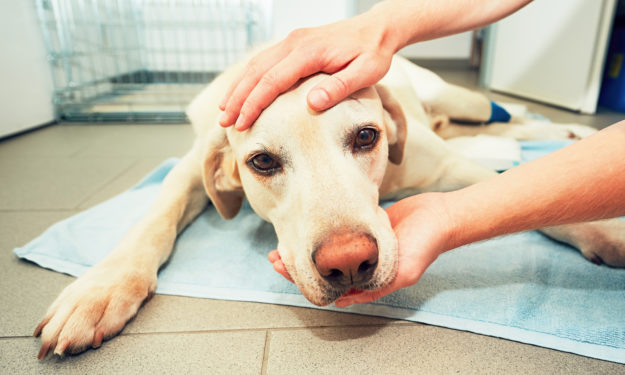Veterinary Spinal Manipulation

Veterinary Spinal Manipulation Therapy (VSMT) also known as “animal chiropractic” is a gentle and non-invasive integrative manual therapy that may help with symptoms associated with dysfunction of the musculoskeletal and neurologic systems.
An adjustment includes gentle range of motion, traction and joint mobilization techniques and specific adjustments to restricted joints, resulting in the restoration of normal motion and alleviation of pain.
There are certain conditions that have a neurologic or musculoskeletal origin that may respond to spinal manipulation (see list below). Veterinary Spinal Manipulation is not limited to the ill and injured, it is believed to be most beneficial for maintaining normal mobility of the spine and for prevention of injury. Almost every professional level sports team from football to NASCAR has a chiropractor on their healthcare team to keep athletes functioning at top performance.
It has been observed that various conditions not responding to conventional therapy have responded to spinal manipulation. This is thought to be due to the somato/visceral connection, or the connection of the nervous and musculoskeletal system to the organ system of the body. Nerves that leave the spinal cord exit the spine and eventually communicate with muscles, joints, and even internal organs. If there is a restriction in mobility anywhere along that pathway, it is possible it may affect the way that muscle, joint, or organ functions.
Conditions/ diagnoses that benefit from a spinal manipulation consultation:
- Neurologic conditions
- Prevention of and conservative management of intervertebral disk disease
- Wobbler’s disease
- Chronic back and neck pain
- Orthopedic conditions
- Arthritis
- Hip dysplasia
- Spondylosis
- Musculoskeletal weakness or pain
- Incontinence (fecal or urinary)
- Maintenance of healthy mobility
- Maintenance of top athletic performance
- Various conditions not responding to conventional medical care
After a thorough initial examination, the doctor will determine if your pet is a good candidate for spinal manipulation and will make appropriate recommendations and adjustments. Veterinarians will only recommend spinal manipulation therapy if it is safe for your pet. If your pet is not a good candidate, she will explain why and suggest additional diagnostics additional specialist consultations (if needed) to work towards a resolution for your pet’s clinical signs. Overall animals love their treatments and eagerly look forward to their visits.